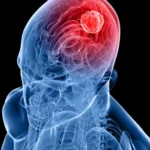
Depression and addictive disorders are two of the most prevalent psychological ailments in the general population. Depression is characterized by deep sadness, loss of interest in daily activities, and changes in appetite and sleep. Addictions, on the other hand, involve a compulsive dependence on a particular substance or behavior, such as chemicals, alcohol, or gambling.
It is important to understand that depression and addiction are complex disorders with many factors contributing to their development. However, research and recent evidence suggest that there is a significant interaction between the two, which can lead to a harmful cycle for those who experience them. We speak of dual pathology to refer to the coexistence of an addictive disorder at the same time as another psychological disorder, such as depression.
For this reason, many question whether depression and the mental state it generates in those who experience it can facilitate the susceptibility to developing an addictive disorder, looking for in these addictions, for example, some stimulation or potential that they think can help them get out of a situation. depressive loop. In this article, we will study the relationships between both disorders, answering the question of whether Depression can lead to addiction.
How are both disorders related?
We could say that the relationship between depression and addiction is complex and multifaceted. First of all, the short answer to the initial question would be: yes, depression can lead to addiction. Numerous studies have shown that there is a significant association between both disorders, but it does not seem to be an exclusively linear relationship, but rather a bilateral one.
1. Effect of depression on addiction
Depression can increase the risk of developing an addiction. People who experience depression often feel hopelessness, sadness, and a lack of pleasure in life. To escape these debilitating symptoms, one escape route is to turn to addictive substances or behaviors as a form of “self-compensation” or self-medication.
These addictive behaviors generate a temporary feeling of relief or euphoria, generating in these people the impression of being a solution for depression; But obviously, this feeling is momentary. This continued search for relief It can trigger a downward spiral through which the person ends up becoming dependent on this substance or behavior, further aggravating depression in the long term.
2. Effect of addiction on depression
Addictions can also influence the onset and course of depression. Being such a self-destructive disorder, in the long run these people may feel their world around them and their environment falling apart, negatively affecting their mood and triggering depressive symptoms. All the negative consequences associated with addiction, such as health problems, deterioration in personal relationships, financial difficulties and legal conflicts, can lead to more additional stress and feelings of hopelessness.
This negative feedback loop between addiction and depression can trap people in spirals of suffering and difficulty in overcoming both disorders.
What is dual pathology?
As previously mentioned, dual pathology refers to the simultaneous presence of a substance use disorder and a psychiatric disorder, such as depression. In this context, dual pathology would entail the coexistence of depressive symptoms and problems related to substance abuse.
Dual pathology presents unique challenges for both diagnosis and treatment. As presented before, the presence of an addiction can complicate the course of depression, which It also entails complications at the time of treatment, since substance use usually temporarily masks underlying depressive symptoms or makes it difficult to adhere to addictive treatments. In turn, depression makes recovery from addiction difficult, as depressive symptoms can trigger the desire to seek relief or satisfaction in addictive substances or behaviors.
To address and treat dual pathology, an integrated and personalized approach is required that takes both conditions into account. It is essential to carry out exhaustive reassessments to identify and treat both depressive symptoms and problems related to addiction, in addition to making the patient aware of the coexistence of these two disorders, seeking to avoid their stigmatization or victimization. Treatments may include individual therapy, group therapy, pharmacological support, and rehabilitation programs that focus on recovery from both conditions.
Multidisciplinary care, with the collaboration of mental health professionals and addiction specialists, is essential to address dual pathology effectively. By providing a comprehensive and personalized approach, the quality of life can be improved for people facing the complexity of depression and addiction together.
How to detect addiction as a result of depression?
To conclude, we are going to propose a series of recommendations when detecting whether an addiction can be caused by depression and how to know when a person in our environment may need urgent professional help.
1. Changes in behaviors and routines
Addiction as a result of depression can lead to withdrawal, social isolation, and loss of interest in activities previously enjoyed. Additionally, daily routines may change, such as disturbances in sleep, appetite, and personal neglect.
2. Substance use as a coping mechanism
When depression leads to addiction, these substances are used to cope with the negative emotions of depression. If an increase in the consumption of alcohol, drugs or other substances is observed in a person who also shows depressive symptoms, it could be a clear indicator of this compensatory behavior.
3. Mood changes
Sudden changes in mood may develop, alternating between periods of euphoria and depression in addition to signs of irritability, anxiety or emotional distress.
4. Deterioration of personal and professional relationships
Addiction can generate many conflicts with family, friends or coworkers, in addition to developing financial and work difficulties due to the impact of addiction on daily functioning.








